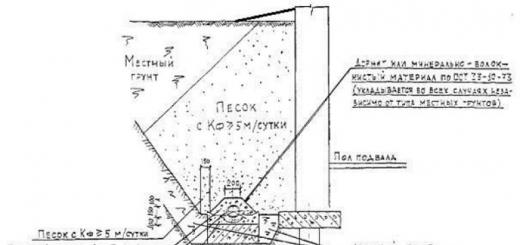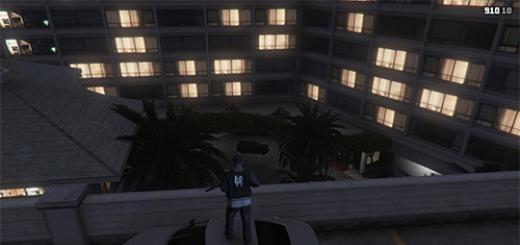From January 1, 2018, a mandatory tourist tax will be introduced in Greece, which will be charged to all tourists when staying in a hotel or licensed apartments - separately from the price of the tour. With the details of the innovation - "Bulletin ATOR".
WHAT WILL THE TOURIST TAX RATES BE
Despite all the negative assessments and forecasts for the decrease in the competitiveness of Greece as a tourist destination,. And be throughout the year, and not just.
So, from January 1, all foreign tourists in Greece will need to pay tourist tax for each night of stay - on the day of arrival or departure from the hotel. The amount of tax depends on the star rating of the hotel.
The hotel has the right to refuse accommodation if tourists have not paid the tourist tax.
The rates are as follows: for accommodation in a 5* hotel - 4 euros per day per room, in a 4* hotel - 3 euros per day per room, 3* - 1.50 euros per day per room, hotels 1* and 2* - 0, 50 euros per night per room.
In addition, those tourists who will live in apartments will have to fork out additionally. For apartments class 4 * - 1 euro per day, 3 * - 0.50 euros per day, 1 * and 2 * - 0.25 euros per day.
HOW WILL THE TAX BE PAID
According to tour operators, organized tourists will pay the tax separately and independently. This fee is not included in the package price. “Tourists will pay on the spot at the hotel, like this, for example,” explained in.
According to the tour operator, on average new tax will lead to an increase in the price of 40 euros per tour. As emphasized by the company, "rather, it is more about temporary inconvenience, as tourists in Greece are not used to paying a fee."
Organized tourists will pay the tax separately and independently. This fee is not included in the package price
The Biblio-Globus company draws attention to the fact that the hotel has the right to refuse accommodation if tourists have not paid the tourist tax.
“It takes time for both hoteliers and tourists to get used to it. It should also be noted that in other European countries the practice of tax collection from tourists has existed for a long time. For experienced travelers, the Greek fee will not be new,” experts say.
THERE WILL BE EXCEPTIONS
True, there may be exceptions: a number of Greek hotels of high categories have already announced their readiness to attribute the tourist tax to their own account. As explained in "Mouzenidis Travel", we are talking mainly about hotels of the category 5 * Deluxe, Luxury.
This information is also confirmed in: according to the tour operator, several Deluxe level hotels will not charge fees from guests, at the moment this list is being specified.
Mouzenidis Travel says that the list of hotels in which the tax fee is already included in the price will be known after the New Year holidays.
The tax will be withheld from all travelers - both organized and independent, who will stay in licensed accommodation facilities: hotels, guest houses, apartments and furnished rooms.
Most of all, the amount of tax will be for those who stay in a 5 * hotel: they have to pay 4 euros per night. For guests of four-star hotels, an additional charge per night will cost 3 euros per room per night, for guests of three-star properties - 1.5 euros per night.
Those tourists who stay in a four-room apartment or apartment will have to pay an additional 1 euro per night. For an overnight stay in 1 * and 2 * hotels, tourists will be charged an additional 0.50 euros, accommodation in three-room apartments will cost the same amount, and 0.25 euros per night will be charged for staying in one or two furnished rooms in an apartment or apartment .
Greek hoteliers and tour operators oppose the new tax, arguing that due to the increase in VAT to 24%, the Greek tourism product has already risen in price this year. To support demand during the low season, there have been proposals to levy the tax only in the summer months so as not to undermine the competitiveness of Greek resorts. However, the Greek government has so far remained adamant: the tax will be and be, regardless of the season.
The last attempt to influence the government was made by the Hellenic Hotel Federation, by order of which it was calculated how much Greece would earn on the new tax, and how much, taking into account the loss of other indirect income, it would lose.
It turned out that in the year the income from the tourist tax will amount to 84 million euros, while due to a decrease in demand, Greece will lose from 340 million to 435 million euros in tourism revenue. The new tax is expected to increase the average room rate by 1.9%, resulting in a 2.5% loss in room revenue.
As emphasized in the study, if hotels take over the payment of the tax, they will either suffer losses or be forced to reduce the quality of service. However, there have already been hoteliers who have decided to pay the resort fee on their own, so that new expenses do not fall on the shoulders of the guests. This mainly applies to expensive 4-5 star hotels.
According to observers, the hotels made this decision in order not to scare away their customers, but sooner or later they will have to include these expenses in their rates. At the same time, the increase in the cost of services for end users will not be sharp, and in fact not noticeable.
If the tax is entirely shifted to the "pocket" of the tourist, then it is likely that he will vote against it "with his feet" and simply go to another country instead of Greece.
It is also noted that the new tax levy will lead to the loss of more than 6,000 jobs in the first year of action.
The Hellenic Tourism Confederation (SETE) agrees that the Greek hoteliers will have a hard time. According to SETE President Janis Retsos, Greece will not feel the consequences of introducing a kind of "resort fee" immediately, but in the "long term" - in 3-4 years.
“The tourism sector will not yet feel the full impact of the new tax in 2018, since many contracts for the next season have already been agreed. But in a few years, when Greece ceases to benefit from the geopolitical situation that has arisen due to the influx of tourists from Turkey and Egypt, there will be problems in Greek tourism,” he said, noting that Greece is already considered an expensive destination compared to its competitors.
Greece is a favorite place for tourists who want to cultivate and soak up the sea coast under the scorching Greek sun. A country with a rich history, impressive remnants of an ancient civilization, many attractions and entertainment for travelers. Representatives of various countries of Europe, Asia, America and Russia flock here every year. Greece's experience of some economic turmoil makes the question of how open a hotel in greece, and some are also interested in the question of how expedient it is to invest in existing hotels for sale. We will discuss this in this article.
The prospect of opening their own hotel in Greece attracts entrepreneurs not only with the opportunity to make money on the tourist destination, but also to enjoy the delights of European civilization. The Greek land is washed by three seas at once: the Aegean, the Mediterranean and the Ionian. Needless to say, even the air there contributes to a comprehensive recovery.
What tourists are looking for in Greece
Greece is beautiful in many ways. Why do tourists choose Greece?
- Location. The flight from central Europe takes from three hours. From Moscow, you can fly to Crete in 4 hours.
- Climate. Gently washed by the seas, the islands are distinguished by cleanliness, a rich underwater world, summer heat that promotes tanning, as well as rich exotic nature.
- Interesting excursions. Sightseeing tours are very developed in Greece. Travelers are interested in the ancient temples of Zeus and Hera, the Acropolis, Monasteries, the ruins of an ancient civilization and much more.
- Ecology. The nature of the Greek islands contributes to longevity and healing from many ailments. For example, the inhabitants of the Crete peninsula can rightfully be proud of one of the lowest mortality rates from cardiovascular diseases.
- Rich cuisine. Describing the delights of Mediterranean cuisine is endless, and everyone knows about them. Many hotels emphasize the variety of food in their establishments.
- Family holiday. In this country, entertainment and pleasure can be found by everyone, from young to old, therefore, tourists from all over the world often choose this particular direction for a family vacation.
- Additional entertainment. Greece will not let even the most demanding customers get bored. There are diving, spearfishing, boat tours to enjoy the sunset with a glass of champagne, and the "ghost town" of Famagusta. In general, a million options for every taste and budget.
The advantages of Greece can be listed for a very long time. All attractions allow sharks tourism business attract guests from all over the world and return those who have already visited again and again.
We have listed a lot of advantages of the Greek islands as an excellent base for the formation of a successful hotel business. However, before you open your hotel in Greece, you need to weigh the pros and cons.
Cons of opening a hotel in Greece
Today, even an unprepared person can find on the net a lot of offers to buy a ready-made hotel business in Greece. Such sales advertisements excite the minds of businessmen with the attractiveness of capital investments. They promise a good annual profit on the basis of an existing hotel. So, for example, a hotel worth 850 thousand euros promises a yield of 120-150 thousand euros per year. The payback indicated in the ad is 7 years. However, one should not blindly believe the calculations of those who are trying to get rid of their business.
Simple arithmetic estimates allow you to calculate discrepancies. The average cost of a room in a hotel of this category ranges from 40 to 80 euros (prices depend on the season and room category). The average hotel occupancy is 70%. We carry out simple calculations that show us a profitability in the region of 70,000 euros. This is already two times less than the promised prospects.
We take into account monthly expenses for employee salaries, permits, advertising campaigns, technical support, products, utilities, and more. Let's not forget about taxes. This is generally a sore subject for business in Greece. According to official statistics, at least 30% of enterprises go to the shadow part of the economy because they cannot withstand the tax burden. And for the operation of a hotel in Greece, a license is required, which cannot be obtained if you do not pay taxes and do not maintain a certain staff. Arithmetic calculations are not so life-affirming.

Pros of hotel business in Greece
Greece is in the top 10 most popular resorts in the world. Of course, in the absence of the necessary education and experience, the hotel business in any country will not meet the expectations of negligent businessmen. However, even in crisis Greece, a lot of hotels live and flourish, offering a good price-quality ratio, a number of exclusive services, good cuisine, and so on. Therefore, a business in capable hands can and should become profitable.
If an entrepreneur does not know the Greek taxation system, the specifics of obtaining a license and other criteria from the inside, the option to open a small-format hotel in Greece, like a mini-hotel in a villa or a private house, will be a good test of the pen and will significantly reduce investment risks. A mini-hotel can meet the requirements that will allow you to switch to a simplified system of taxation and obtaining a license. This license is issued for the season, and the annual net profitability of the hotel can be 5-7%.

From January 1, 2018, tourists who stay in Greece for more than a day must pay an "accommodation tax". Now a night in a hotel will cost an additional 0.5 - 4 euros, and renting a room or apartment - from 0.25 to 1 euro
disputed tax
According to government calculations, the new tax will bring about 80 million euros per year to the treasury. This is just one of the measures taken by the Greek Parliament in May 2016 to stabilize the country's economy. At the same time, it was decided to raise VAT from 23% to 24%, to introduce a special tax on cigarettes, tobacco and electronic cigarettes. Together with a number of other important initiatives new policy has already given the first results: according to IMF experts, the growth of Greek GDP in 2017 amounted to 1.68%, and in 2018 it will reach 2.5%.
According to government estimates, the new tax will bring in about 80 million euros per year to the treasury.
On the other hand, the new tax caused disapproval of the hotel market participants. Thus, the Hellenic Federation of Hoteliers (HFF) expressed concern that such a measure would not have the best effect on the development of the industry, and asked to limit its effect to the summer period. "This will seriously affect any attempt to expand the tourist season, as room rates are known to be significantly lower in winter," GTP Headlines quoted HFF from the appeal.
Hoteliers protest new tax and predict €435m profit cut and €340m loss to Greek economy
According to analysts at Grant Thornton, the accommodation tax will have a negative impact not only on the hotel industry, but also on the country's economy as a whole: the profit of hoteliers will be reduced by 435 million euros, and the losses of the Greek economy will amount to about 340 million euros, which exceeds the potential profit in four times. According to SETE President Yannis Retsos, the introduction of the fee will lead to an increase in the average cost of living by 5-6%, and for small hotels - by 10%, which will force their owners to bear the costs.
 Photo: shutterstock.com 2
Photo: shutterstock.com 2 The rise of tourism
In 2017 Greece was visited by a record number of tourists from abroad. According to preliminary estimates of the Greek National Tourism Organization (GNTO), announced at the international exhibition WTM in London, this number will be about 30 million: 7% more than in 2016. According to statistics published by the Athens Airport, the passenger traffic of international tourists in 2017 increased by 12% compared to 2016.
In 2017, about 30 million tourists visited Greece.
According to the Bank of Greece, the amount of tourist spending from January to September 2017 broke a record of 13.02 billion euros - an increase of 1.24 billion euros compared to the same period in 2016. The average travel duration in these months increased by 1.5%, while the average cost per trip increased by 1.4%.
The indicators of the hotel business have grown symmetrically. According to the Hellenic Statistical Service (Elstat), the number of nights that foreigners spent in hotels in Greece in the first three quarters of 2017 amounted to 63.1 million - 6.3% more than in 2016. Hotel occupancy also increased: from 54.1% in 2016 to 55.3% in 2017. In general, the turnover of the restaurant and hotel business in the third quarter of 2017 increased by 13.9% compared to the same period in 2016.
 Photo: shutterstock.com 3
Photo: shutterstock.com 3 Why is the tax not scary?
“It is clear that Greece is heavily dependent on tourism and hospitality, but other cities in Europe are successfully coping with a similar fee,” according to the English company The Hotel Property Team. For example, according to The Guardian, accommodation tax in Berlin, Amsterdam and Cologne is 5% of the room bill, in Paris - from 20 cents to 1.5 euros per person per night, and in Rome additional fee for hotel accommodation can reach up to 7 euros per night.
According to the Greek tour operator Mouzenidis Travel, the new tax will increase the cost of Greek tours by an average of 40 euros. “Rather, we are talking about temporary inconveniences, since tourists in Greece are not used to paying a fee,” the Association of Tour Operators of Russia quotes the words of a representative of the company. A number of five-star hotels have stated that they will not collect the tourist tax separately, but will take it to their own account.
According to preliminary estimates, the new tax will increase the cost of Greek tours by an average of 40 euros.
An additional fee is unlikely to seriously affect the number of tourists, and because prices in Greece are much lower than in most other European countries. According to AirDNA (the service that processes Airbnb's data), the average rental price in Athens is one and a half times lower than in Berlin, two times lower than in Paris and Rome, and three times lower than in Amsterdam.
On January 1, 2018, Greece introduced a mandatory tourist tax, which will be collected from all tourists when staying in a hotel or licensed apartments - separately from the price of the tour. Despite all the negative assessments and forecasts for the decrease in the competitiveness of Greece as a tourist destination, there will be a tax on accommodation in hotels in Greece. Moreover, to be throughout the year, and not only in the high season, as the Greek hoteliers have repeatedly asked.
So, from January 1, all foreign tourists in Greece will need to pay a tourist tax for each night of their stay - on the day of arrival or departure from the hotel. The amount of tax depends on the star rating of the hotel. At the same time, it doesn’t matter at all if you bought a tour to Greece before or after January 1, 2018.
ATTENTION! The hotel has the right to refuse accommodation if tourists do not want to pay the tourist tax.
Ratesfor accommodation
in hotels in Greece:
Organized travelers will pay the tax separately and on their own at the hotel. This fee is not included in the package price. On average, the new tax will lead to an increase in the price of about 40 euros per tour.
A number of Greek luxury hotels of high categories have already announced their readiness to take the tourist tax to their own account. The list of such hotels, in which the tax fee will already be included in the price, will be known after the New Year holidays.










